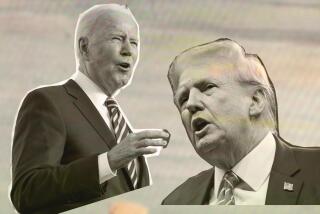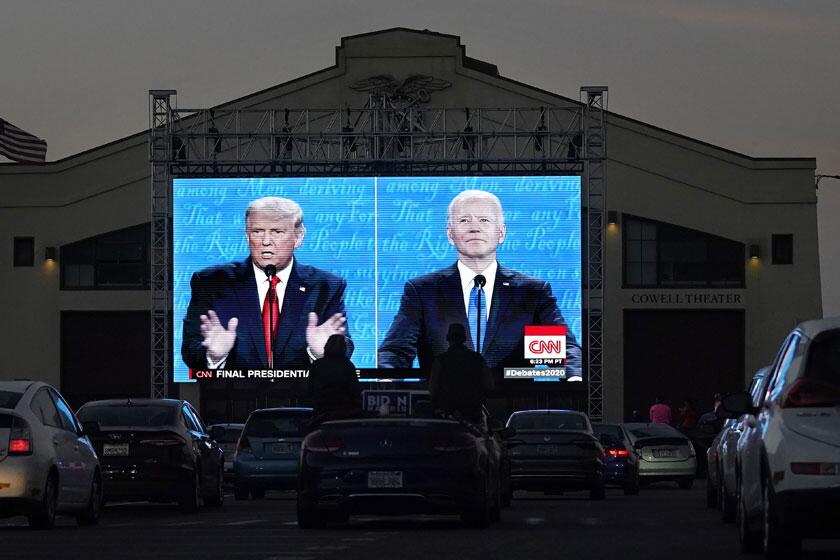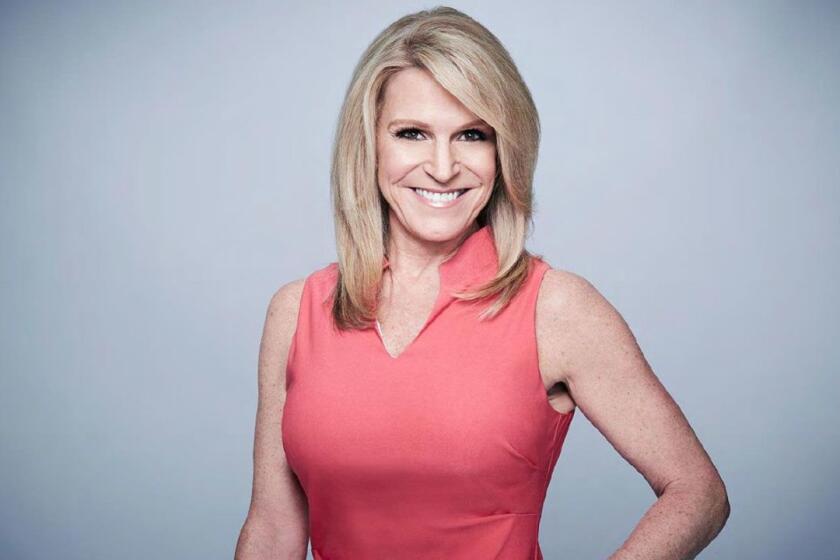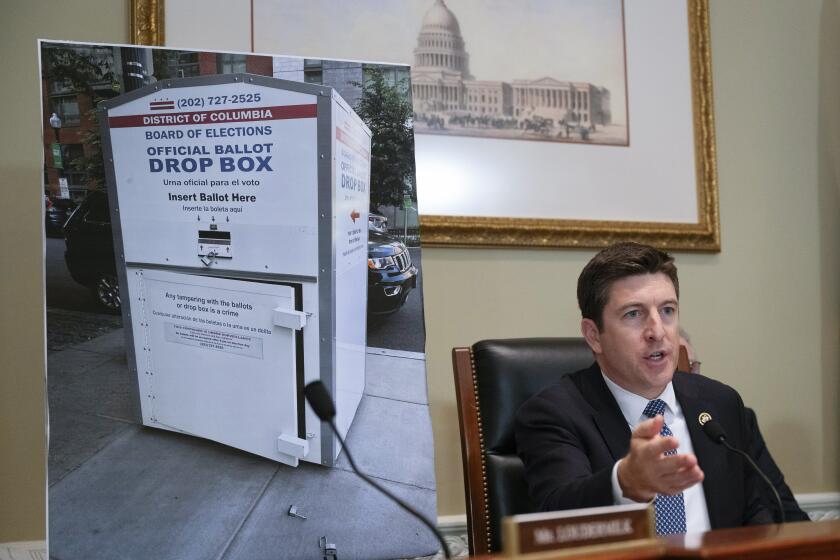Clinton Scolds Drug Industry on High Costs for Elderly
President Clinton angrily chastised the nation’s pharmaceutical industry Monday for charging prices beyond the means of many elderly patients. Reiterating his call for expanded prescription drug insurance, Clinton created a commission to study drug costs.
The president, who was stung in 1994 when opponents’ advertising helped defeat his wide-ranging health insurance reform plan, took special aim at the drug manufacturers’ ads, built around a character named Flo and her warning that the federal government was about to enter the nation’s medicine cabinets.
“Old Flo’s up there arguing for keeping 13 million seniors, just like her, from having any access to any drugs,” Clinton said. “Bet she wouldn’t be making that ad if she had found herself in the same position.”
The pharmaceutical industry’s lobbying arm, anticipating Clinton’s attack, began defending itself with an active fax campaign, even before he spoke.
“This whole thing is about politics,” said its spokeswoman, Alixe Mattingly.
Indeed, the question of drug prices has made its way into the presidential campaign.
In New Hampshire last week, Vice President Al Gore spoke to members of the American Assn. for Retired Persons and, as props, held up two bottles representing drugs purchased in New Hampshire and Canada. The Canadian drugs, exactly the same as those from the United States, could be purchased across the border at less than half the price paid in New Hampshire, he asserted.
Clinton joined that debate Monday.
Accusing the pharmaceutical industry of distorting the course he had taken, the president said: “I wish they’d spend this ad money explaining why seniors have to get on the bus and go to Canada to buy drugs at less than half the price they can buy them in America, when the drugs are made in America with the benefit of the American system and American research and American tax systems.”
The industry has long argued that its prices reflect the high cost of research and extensive trials that develop drugs, as well as the limited market for some of them.
In addition, they say, it is unfair to compare U.S. prices with the retail costs charged in countries that offer subsidies or impose price controls.
To the industry’s assertion that elderly patients would be forced into a government-run drug plan, the president responded: “Under our plan there are no government restrictions of any kind. Doctors would be able to prescribe any needed drug for any patient at any time, and the benefit would be purely voluntary. Completely optional. If seniors want to keep their current coverage, they’re perfectly free to do so.”
He said that 13 million elderly Americans have no insurance coverage for prescription drugs and that millions more have inadequate coverage.
The commission the president created was ordered to produce in 90 days an analysis of how much those with and without prescription drug coverage pay for the most commonly prescribed drugs.
Clinton has been unsuccessful so far in winning congressional approval of his plan to include prescription drug coverage in Medicare, the government’s health insurance program for the aged and disabled.
“One of the key reasons no action was taken on prescription drugs this session was because the pharmaceutical industry spent millions of dollars on an all-out media campaign filled with flat-out falsehoods,” Clinton said.
It is unclear whether employers would embrace Clinton’s proposal.
In a survey attempting to see how employers providing prescription drug coverage to retirees would respond if Clinton’s plan is enacted, 80% said that they would retain the coverage they now provide and 20% said they would eliminate it. The survey was conducted for the Henry J. Kaiser Family Foundation, which describes itself as a nonprofit health care philanthropy and is not associated with Kaiser Permanente or Kaiser Industries.
But Rep. Bill Archer (R-Texas), chairman of the House Ways and Means Committee, said that a study conducted by the accounting firm PricewaterhouseCoopers estimated that 50% to 75% of employers would drop or limit their prescription coverage if Clinton’s plan were enacted, eliminating drug insurance for up to 9 million beneficiaries.
He said Clinton’s plan would double the Medicare premiums that senior citizens pay.
Mattingly, spokeswoman for the Pharmaceutical Research and Manufacturers of America, said the industry organization agrees that Medicare needs to be changed to help elderly people pay drug costs.
But, she said, Clinton’s pitch is intended primarily to gain the support of the elderly for Gore’s presidential campaign and that of Democratic congressional candidates.
More to Read
Get the L.A. Times Politics newsletter
Deeply reported insights into legislation, politics and policy from Sacramento, Washington and beyond. In your inbox three times per week.
You may occasionally receive promotional content from the Los Angeles Times.






